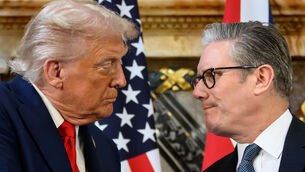New Third Secretaries in foreign affairs must be vital cog for Ireland Inc
International headlines once laudatory, turned damning. The real story was a lot more layered but complex truth doesn’t travel in fast moving events. Ireland went from hero to zero overnight.
Third Secretary is the entry grade for graduates into the diplomatic corps. About 25 are about to be recruited.















